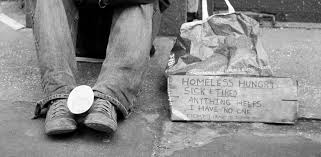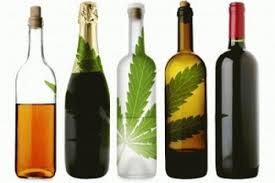Rehab Articles

Two of the top reasons that people become homeless are mental illness and alcohol abuse or other forms of substance abuse, and a new program called Housing First is taking steps to provide a solution. A recent study found that it is possible to reduce alcohol abuse for those with mental illness in the homeless population by providing these individuals with a safe place to live that has no preconditions attached. The Housing First approach does not place stipulations on a place to live, such as seeing mental health professionals or sobriety testing. Instead Housing First places a focus on getting the homeless individual into permanent housing that allows the individual to live independently. Support and additional services are provided as needed but the homeless individual does not have to follow any preconditions in order to have a safe place to call home.
The underlying ideal behind the Housing First initiative in order to fight alcohol abuse and mental illness among the homeless is that people will be able to move forward and will have a better life if they have stable housing and a more predictable living situation. The study involved 378 people who were all homeless, and who were all diagnosed with some form of mental illness. All of the study participants were from Toronto, Canada. Those who took part in the Housing First initiative saw a drop in alcohol abuse of more than 50%, and this decrease occurred in spite of the fact that the homeless were not forced to stay sober or to follow any other preconditions in order to avoid becoming homeless again.
Rehab Articles

There are many alcohol abuse facts that you may not know. For instance did you know that every individual is different when it comes to how much alcohol they can consume before they start to feel the effects? Individuals who have built up a tolerance for alcohol because of their substance abuse may be able to drink large amounts of alcohol without seeming to be impaired. This is regardless of size or weight. Another interesting fact is that there is a large percentage of people who know they have a problem with alcohol abuse yet they never seek treatment for this problem. Sometimes this is because they are ashamed, at other times the individual does not really want to stop drinking.
Treatment for alcohol abuse, unlike some types of substance abuse, may require medical detox. Over time as you drink your body actually develops a physical tolerance to this substance. If you drink a lot for a long time and then you just quit cold turkey you could end up with life threatening withdrawal symptoms. These can include seizures, DTs, and other problems. A treatment program that provides medical detox will have medical staff on site so that any dangerous withdrawal symptoms can be treated with the appropriate medications. If you have a problem with alcohol abuse you need help. If you have been through treatment before and you need further rounds this may indicate that the previous program was not effective. Many people only succeed when they find the right program and the best possible treatment methods.
Rehab Articles

There are a number of alcohol facts that everyone should know, and this knowledge could help lower the rate of alcohol abuse by preventing excessive drinking in the first place. For instance the amount which is considered a single drink. Many people miscalculate how much they are actually drinking, and this can lead to intoxication, blacking out, or even alcohol toxicity in the body. A standard drink is considered to be 12 ounces of beer with a 5% alcohol content, 8-9 ounces of malt liquor with a 7% alcohol content, 5 ounces of wine with a 12% alcohol content, or one and a half ounces of 80 proof liquor with an alcohol content of roughly 40%.
Another one of the important alcohol facts that everyone should be aware of is what constitutes problem drinking. Alcoholism is a very common condition that is both serious and chronic, and it often starts with alcohol abuse and problem drinking. A male who has 5 or more drinks in a single day, or a woman who has 4 or more drinks in a day, may have a problem with alcohol. This is also true if you have ever started the morning with a drink, or if this activity interferes with your life, causes problems, or causes you to feel guilty about your actions. If friends or family show concern about your alcohol use then a substance abuse evaluation should be arranged. This will help identify any problems and determine the most appropriate treatment for your specific situation and issues.
Rehab Articles

alcohol abuse, alcoholism
1. One of the most common signs of alcohol abuse is drinking excessively. This may mean drinking to get drunk or consuming alcohol until you become unconscious and pass out. Binge drinking does not usually occur every day but it is an indication that there is a problem with alcohol abuse that needs to be addressed.
2. One of the symptoms of alcoholism is needing to drink on a daily basis. If you find that you can not relax after work without having at least one drink, or you feel the need to drink at the same time every day, then substance abuse treatment is needed.
3. Alcohol abuse treatment may be needed if you find that you have an urge to drink whenever you are under pressure or the stress of daily life gets too high. Sometimes individuals turn to alcohol in order to cope with these pressures and that can lead to abuse.
4. One sign of alcoholism is continuing to drink even though this interferes with your daily life and responsibilities. If you find that you are having problems at work, school, or home because of your alcohol consumption yet you continue to drink then this is an indication that you need treatment for substance abuse.
5. Typically alcohol abuse causes relationship problems. If you hide how much or how often you drink from family and friends in order to avoid any arguments or problems then this means you are probably abusing alcohol. Being secretive and hiding your drinking habits is a sign of a problem that needs to be resolved.
Rehab Articles

alcohol abuse, marijuana use
A recent study performed by New York University researchers documents the psychosocial impacts of marijuana use and alcohol use among high school seniors. The study can be found in the American Journal of Drug and Alcohol Abuse as well as online sources. Some of the students who were involved in the Monitoring the Future Study were chosen to represent a national sample of seniors in high school across the country for this study. According to one of the study researchers, Joseph J. Palamar, Ph.D., M.P.H., “The paucity of research is of particular public health concern as alcohol and marijuana are the two most commonly used psychoactive substances among adolescents. Nearly half of high school seniors have used marijuana in their lifetime and over two-thirds have used alcohol, but few studies have compared adverse psychosocial outcomes of alcohol and marijuana directly resulting from use. The most alarming finding was that alcohol use was highly associated with unsafe driving, especially among frequent drinkers.
The latest study on marijuana use, alcohol abuse, and high school seniors shows that both drugs affect teens in different ways. Alcohol abuse among teens tends to interfere with social and personal relationships, and females who drank were far more likely to report feeling regret for their actions when drinking after they sober up. Marijuana use caused problems in educational and professional relationships rather than personal ones, and teens who used marijuana reported having less energy and a lower performance while at school or on the job. Palamer went on to say that “Not unexpectedly, we found that the higher the frequency of use, the higher the risk of reporting an adverse outcome. In particular, the relationship between frequent alcohol use and regret was much stronger than the relationship between frequent marijuana use and regret.”



